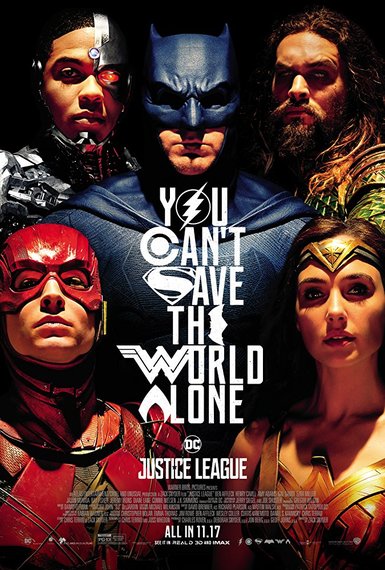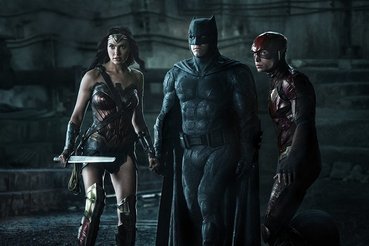Written by Mike Cervantes It was the best of times; it was the worst of times. It was an era when audiences loved to watch superhero films, and actually wanted said films to follow the lengthy continuity of the comics they were based upon. It was a time of great prosperity for comic book properties big and small, with properties either no longer thought viable, like Captain America, or ones that lavished in obscurity, like Guardians of the Galaxy, had an opportunity to shine. But there was a downside to this era, and it ironically fell on the shoulders of DC Comics, progenitors of some of the United States’ most iconic superheroes. Following the bankable, if not critical, success of Christopher Nolan’s The Dark Knight trilogy, Warner Bros, the parent company of DC, chose to go all in on established superhero film director Zack Snyder, previously of films like Watchmen and 300. Thus, producing a Superman revival in the form of Man of Steel which was a critically planned, and thinly-veiled remake of Superman II. Further following the bad taste exhibited in that film with the abysmal Batman v Superman: Dawn of Justice, featuring a CrossFit-training Batman played by Ben Affleck setting forward events which inevitably lead to the death of the established Henry Cavil Superman. Elsewhere the band played on, with in-continuity spinoffs like the thematically uneven Suicide Squad, and the admittedly well-done Wonder Woman, all of which was destined to lead up to an assembly of all DC’s major players, in a movie that could only be known as Justice League. Whether or not Snyder would have struck a more serious tone with the film is something that will now forever live on in debate, since, after the tragic and unfortunate death of his daughter, Snyder left the project in post-production, to be picked up by equally established superhero film director Joss Whedon. Thus, Snyder’s more edgy and visceral visions of the DC comics universe have been juxtaposed with the comedic and character-centered dynamic first seen in Whedon’s first Avengers feature. What results is a motion picture that, whether you ultimately decide is a success or a failure, you must undoubtedly acknowledge is a mixed bag. The premise is simple, and while it doesn’t take pages from specific sources, as Man of Steel and Batman v Superman did, there’s still a sense of Jack Kirby-esque familiarity to it all. Batman, once again played by Ben Affleck, still reeling from his critical misjudgment of Superman, has begun a worldwide search for a group of superhumans to protect the Earth from another potential alien attack. Having already established ties with Gal Godot as Wonder Woman, he seeks the other three mystery supers in Lex Luthor’s notes, and investigates the presence of three ‘Mother Boxes’ of unmistakable power that were mixed in those notes as well. Meanwhile, the isle of Themyscera is attacked by a simultaneously mythical and alien being named Steppenwolf (Cirian Hinds). He steals the first Mother Box from the island, forcing Batman to speed up his efforts to bring the remaining three heroes to the side of good, before Steppenwolf can swipe the remaining three cubes.  The use of a character like Steppenwolf is an interesting, if not bold, choice. They’re clearly attempting to grandfather in some of Jack Kirby’s best DC work, which focused on villains from the alien planet of Apokolips, but have learned their lesson from Batman v Superman, in that they can’t just toss a big-name villain like Doomsday (or Darkseid) into the last act of the film and expect comic geeks to call it ice cream. Steppenwolf is a safe choice, with his army of silent henchmen Parademons, as the only link to his origins on Apokolips. That’s fair enough for a villain, but this film also gives you an indication that just as much attention was spent on bringing us the other three members of the Justice League. It’s fortunate that a good amount of the plot is moved forward by Ray Fisher as Victor Stone/Cyborg, if only because his origin was retconned to include one of the Mother Boxes as part of his technological interface. Ezra Miller’s Flash is brought in at a point in his origin that is far flung from his impressive evolution in the comics, or his hit TV series on the CW, and really only serves as a lighthearted comic relief for the pack. Even less utilized is Jason Momoa’s Aquaman, who is unnecessarily upper-lip curled-style cynical during the proceedings, and is neither the powerful leader of Atlantis or the noble guardian of the sea that any of his comic incarnations have been. Further frustrating the issue is that, once the inevitable team is assembled, Batmanfleck sees in the Mother Boxes an attempt to resurrect The Man of Steel, who, lest the audience forgot he-worked-to-kill-to-satisfy-his-own-self-righteous-fear. Invariably, enjoying this movie is like enjoying a particularly good scar: it gives you a cool enough story to bring up with co-workers, but you will regret anyone walking up and poking it on its sore spots, because that’s what still feels painful. The delightful superhero romp-parts are frequently put down by reminders of the eye-rollingly bad Snyder continuity that permitted this movie to even happen. Batmanfleck is the single character that feels this mood whiplash the most, as his character is inclined to crack jokes amidst feeling slight remorse for leading Superman to his death, and feels overall flawed in a way that no incarnation of Batman has ever felt before. Gal Godot as Wonder Woman fares better, her films having so far risen above the quagmire of Snyder-continuity. It’s a shame then, not only that she seems to have very little to do, but that quite a few of her establishing shots are done…below the waist. And Superman, in his inevitable resurgence, fails to break the atmosphere of his Snyder incarnation, remaining a highly destructive force of nature that’s only occasionally brought to humility by the presence of Lois Lane (Amy Adams) and Martha Kent (Diane Lane). A few cameos from the likes of Joe Morton, Robin Wright, David Thewlis, a recast of J.K. Simmons in the role of Commissioner Gordon, and the momentary presence of Amber Heard as Mera, help to flesh this out as a more stable universe, at least as far as fan service is concerned. In regards to the movies that came before it, Justice League is hands down the superior of every film in this continuity, other than Wonder Woman, which stands on its own as a great film about its own character. What ultimately comes off as flawed in this film can really only be blamed on the two films that made up the foundation for this one. A better film might have been one with the exact same actors mostly just ignoring the continuity of the previous films, and reuniting the characters with Superman in the same enigmatic way he is often returned to the comic books. But, given the circumstances, I wouldn’t say that this film should be ashamed, only very heavily considered. Eat your popcorn.
0 Comments
Leave a Reply. |
Archives
March 2025
|
|
© 2012-2025, Nerds That Geek LLC.
All Rights Reserved. |
uWeb Hosting by FatCow


 RSS Feed
RSS Feed